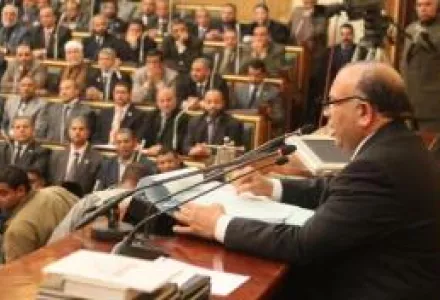A seminar with Muhammed Y. Idris, MEI Research Fellow and Ph.D. Candidate in the department of Political Science, Pennsylvania State University. Part of the Middle East Initiative Research Fellow Seminar Series.
Moderated by Tarek Masoud, Associate Professor of Public Policy, Harvard Kennedy School.
Political institutions in the Arab world have long been considered nothing more than rubber stamps for state policies. This talk reconsiders this conventional wisdom about the policy impotence of Arab parliaments. Examining the rhetorical strategies of legislatures in Egypt under the reign of Hosni Mubarak and the National Democratic Party (NDP) using natural language processing techniques, we provide evidence that these institutions provide a political landscape within which meaningful representation and contestation occurs.
About Muhammed Y. Idris:
Muhammed Y. Idris is a pre-doctoral researcher at the Belfer Center’s Middle East Initiative, where his research focuses on the political economy of the Middle East and North Africa. In particular, he has written on the efficacy of economic sanctions in destabilizing autocratic leaders and regimes, constituent representation in autocratic institutions, and the mediating effect of institutions on investor reactions to political instability in conventional and Islamic markets. A common thread running through his research is the application of computer-aided statistical analysis of English and Arabic texts to develop new and better measures of social phenomena. This includes developing software to machine code political instability at scale, and modeling political attention from legislative speech in MENA parliaments. In addition to appointment at HKS, Muhammed is also a visiting fellow with the data science group at the Harvard Institute for Quantitative Social Science, and a Ph.D. candidate at Pennsylvania State University.



